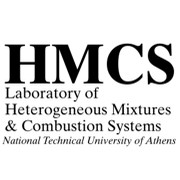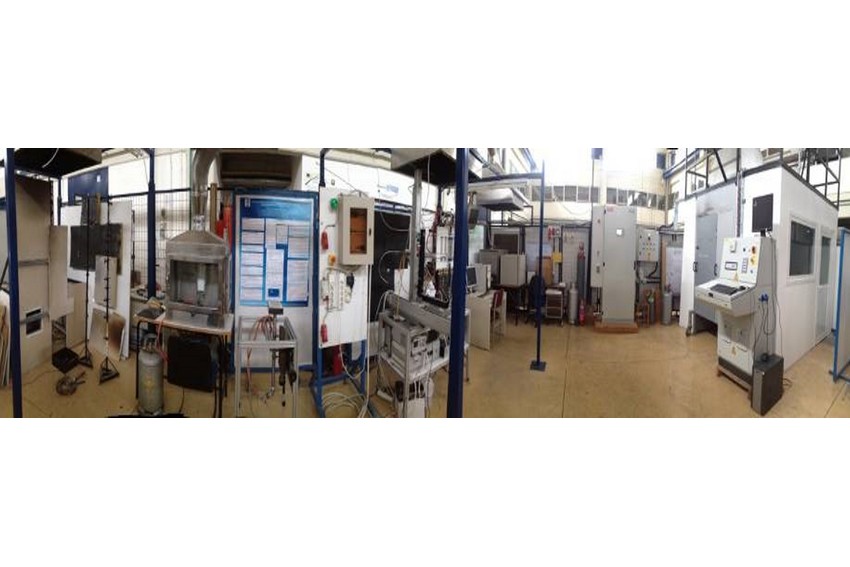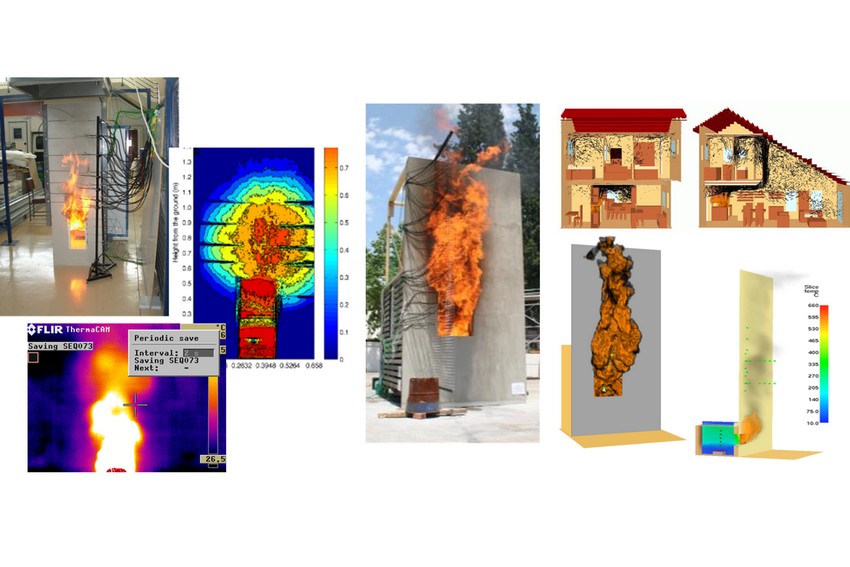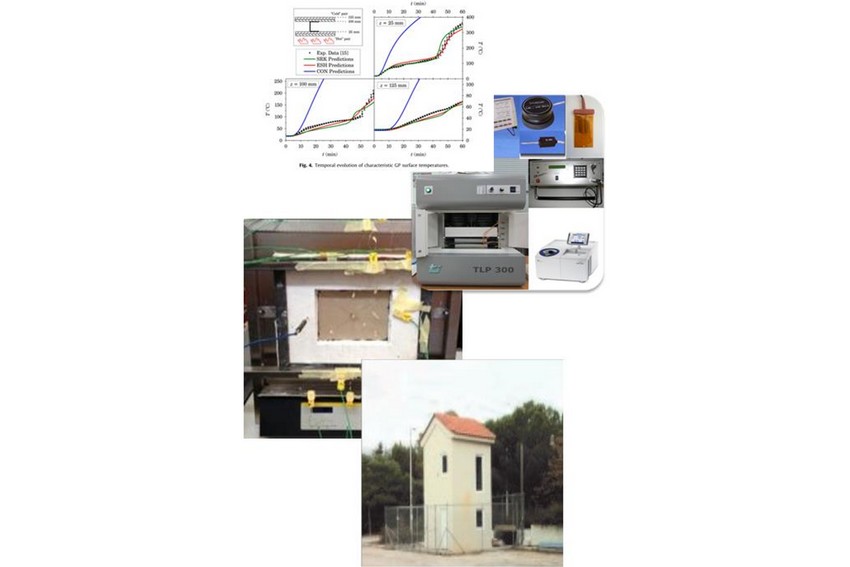
Identity
Establishment details:
Official Gazette 278, Issue 1, Decree 322, 11/19/2002
Director:
Prof. Maria Founti
Tel.: 210-7723605
e-mail: mfou@central.ntua.gr
Permanent staff:
Special Teaching Staff:
Dr. Dimitrios Giannopoulos, e-mail: digiann@central.ntua.gr
Dr. George Zannis, e-mail: gzannis@central.ntua.gr
Dr. Dimitrios Katsourinis, e-mail: dimkats@central.ntua.gr
Dr. Dionysis Kolaitis, e-mail: dkol@central.ntua.gr
Administration:
Ms. Eirini Founti, e-mail: renafou@central.ntua.gr
Contact info:
Laboratory of “Heterogeneous Mixtures and Combustion Systems”
Building “O”, School of Mechanical Engineering,
Heroon Polytechniou 9, Zografou Campus, Athens 15772
Website:
http://hmcs.mech.ntua.gr/
https://www.facebook.com/pages/HMCS-Lab
https://www.youtube.com/user/ntuahmcs
The Laboratory of Heterogeneous Mixtures and Combustion Systems (HMCS) is an accredited Laboratory of the Thermal Engineering Section of the School of Mechanical Engineering of the National Technical University of Athens since 2002. The scope of HMCS is to meet the teaching and research needs of the School of Mechanical Engineering in the subjects of combustion systems, combustion of gaseous liquid and solid fuels, heterogeneous multiphase processes and related physical processes. Another mission of the Laboratory is also the provision of services according to the provisions of the P.D. 159/1984.
The research activities focus on the areas of combustion and fire engineering, on the energy efficiency evaluation of construction materials-systems-buildings, on the energy optimization of industrial processes and systems, as well as on the energy, techno-economic and environmental evaluation of the above.
In addition, the HMCS Laboratory provides specialized services to industry and private or public organizations, in the form of performing measurements, analysis, processing and interpretation of results, drafting opinions and preparing technical reports.
RESEARCH ACTIVITIES
New Combustion Technologies – Thermochemical Systems
- Μultiphase, multicomponent, chemically reacting flows and systems.
- Combustion in furnaces, burners, innovative combustion processes, physical processes (e.g. vaporization/droplet combustion). Combustion of fossil and renewable (bio-) fuels.
- Simulation of thermochemical processes. Modeling of fuel reforming. Application to fuel cells.
Fire Engineering
- Experimental investigation and computational simulation of fundamental phenomena that characterize uncontrolled combustion / fires in closed and open spaces.
- Computational tools for prevention and control of fire spreading in enclosed spaces (buildings, ships, aircraft, tunnels).
- Large-scale fire propagation studies to investigate factors influencing fire spreading. Design and implementation of medium-scale laboratory and full-scale fire tests (e.g. facades).
- Investigation of fundamental flow and thermal characteristics of flames exiting from buildings.
- Study of the behavior of building materials at high temperatures. Improving the behavior of construction products in fire conditions. Investigation of the behavior of building materials at high temperatures.
- Experimental and numerical investigation of wildland fires and fires at the wildland-urban interface (WUI).
Energy saving & storage in Buildings and Energy Communities
- Improvement and assessment of energy properties of building materials.
- On-site measurements of thermal resistance (R-value) and thermal permeability (U-value) in existing building envelopes
- Measurements & simulation of energy behavior of buildings & districts and historic buildings.
- Improvement of the efficiency of energy systems of buildings and districts through the management of automation systems.
- Evaluation of integration of energy storage materials and systems in buildings
- Evaluation of application of innovative and environmentally friendly materials and systems in new and renovated constructions (e.g. super-insulation, bio-based, nature based materials).
Energy systems: Techno-economic and environmental assessment
- Evaluation of energy technologies using combined multi-criteria analysis and life cycle analysis methods. Comprehensive methodology to support energy system selection.
- Modeling energy systems and optimizing the performance of production line processes.
- Integrated assessment of energy technologies by integrating overall environmental impacts, technical efficiency and economic viability.
SERVICES
Fire Engineering Unit (Fire Reaction Tests) (EMPyr)
HMCS.EMPyr is a Notified Laboratory (NB 2878), according to ESYD Accreditation Certificate no. 1191, Annex F1/1 – ЕLОТ ЕN ISO/IEC 17025:2017 for Construction Products (Construction Products Regulation 305/2011 of the European Parliament) for “Reaction to Fire” Tests following the EN 13501-1 standard:
| STANDARD TEST | DESCRIPTION |
| ΕΝ ISO 11925-2 | Flammability test |
| EN 13823 | Single Burning Item (SBI) test |
| EN ISO 1716 | Test for determination of higher calorific value |
| EN ISO 1182 | Non-combustibility test |
| EN ISO 9239-1 | Floor thermal radiation test (out of scope of accreditation) |
For the classification of construction products in terms of Reaction to Fire, the European Class system (Euroclass) is applied, which is defined in the EN 13501-1 standard.
Building Materials Energy Performance Unit (Thermal properties of materials and systems)
The following tests are performed:
| STANDARD TEST | DESCRIPTION |
| EN ISO 8302 | Test for determination of thermal resistance by the Guarded Hot Plate method |
| CSN EN 12087 | Water absorption determination test by total or partial immersion |
| CSN EN ISO 11357 | Test for determination of specific heat capacity by Differential Scanning Calorimetry |
| ASTM D5334 | Determination of Thermal Conductivity of Materials by the Thermal Needle Probe Method |
| ASTM C1155 | Field Test for Determination of Thermal Resistance of Building Envelop Elements |
Energy and Techno-economic Assessment Unit (Life Cycle Assessment – LCA, Environmental Product Declaration – EPD)
- Full Life Cycle Assessment (LCA) for products or processes accompanied by full report.
- Categorizing products according to applicable Product Category Rules (PCR) or creating a corresponding PCR.
- Preparation of Environmental Product Declaration (EPD) and collaboration with accredited verifier.
- Consultation services for issuing of EPD on the platform of the International EPD System.
- “EPD Verification”, in terms of results and compliance with the respective applicable standards/rules by an accredited verifier.





